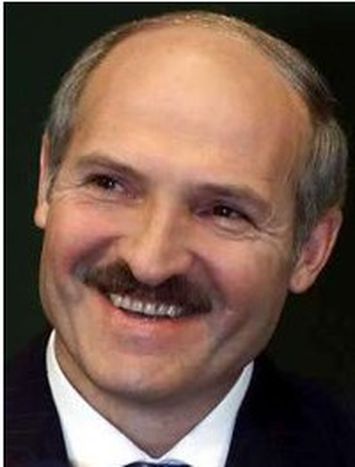
Belarus and their rigged election
Published on
Translation by:
 amy daw
amy daw
'Neither free, nor fair'. For the observers sent to the Belarus elections by the organisation for security and cooperation in Europe (OSCE) on 19 March, Alexander Lukashenko's victory is as comfortable as it is suspicious
82.6% of the support won by the 'farmer of Gorodets' (the state farm which Alexander Lukashenko ran before becoming president), has not been certified by international observers, who are prohibited by law from attending the vote counting. For the opposition, led by Alexander Milinkevich, support for Lukashenko wouldn’t exceed 45%, which would force a second round of voting.
The protests in Independence Square, Minsk after the central electoral committee made the results public were reminiscent of Revolution Square in Kiev in the winter of 2004. In this case, the orange tide has been substituted by a wave of white and red national flags – prohibited by the government – and distinguished by the EU’s circle of stars. Between cries of Gañbá ('shame') and Zhive Belarus ('long live Belarus'), 10,000 people defied the icy temperatures and the threats from Lukashenko. Hours earlier, he had declared that he would treat as a terrorist anyone who dared to protest against the election results. Fenced in by police vans and the KGB – the Belarusian secret service still uses the worrying name from soviet times – the popular protest has been the biggest anyone can remember in the country’s history, although the number of demonstrators was halved on Monday afternoon.
International storm
While the protests in Minsk lose steam, another storm has been unleashed by the international community. The EU has not turned a blind eye to the result of a campaign which has resulted in dozens of activists being detained, observers being deported, and the hijacking of the media such as the newspaper Narodnaia Volia ('People’s Will'). Terry Davis, the secretary general of the council of Europe, hasn’t hesitated in describing the elections as an 'electoral sham'. Ursula Plassnick, the Austrian foreign affairs minister – coming from the country which currently holds the rotating EU presidency – has declared that the Belarusians have voted in a climate of clear 'intimidation'. In the USA, which listed Belarus among countries on the 'axis of evil' in 2005, white house spokesman Scott McClellan has already urged the holding of new elections. On the other side of the world, Russia and the commonwealth of independent states (CIS) have rushed to congratulate the president, acknowledge his legitimacy and 'praise the transparency' of election day.
Even though countries such as Germany or Poland would prefer to adopt a 'hard' stance against Lukashenko’s government, the EU’s actions are aimed at establishing sanctions like the prohibition of the granting of visas to diplomats, or international isolation. The approach of the EU doesn’t go into a possible non-acknowledgement of the 'elected' president, nor the setting in motion of economic sanctions: in 2005 Belarus received more than 9 million euros in European help. With this outlook, for those people who waited excitedly for a new hand over to the revolutions of colour, the portrait of the elections is decidedly grey.
Translated from Bielorrusia y su fantasmada electoral


